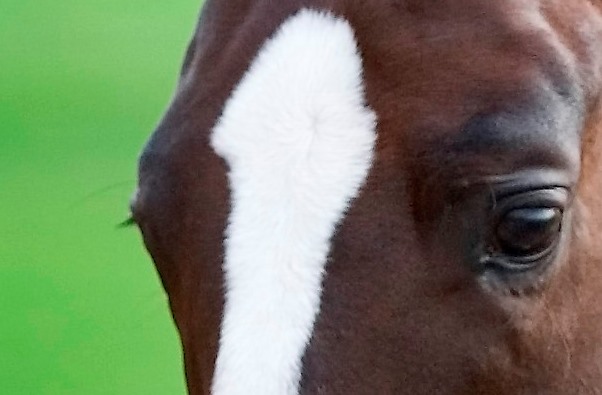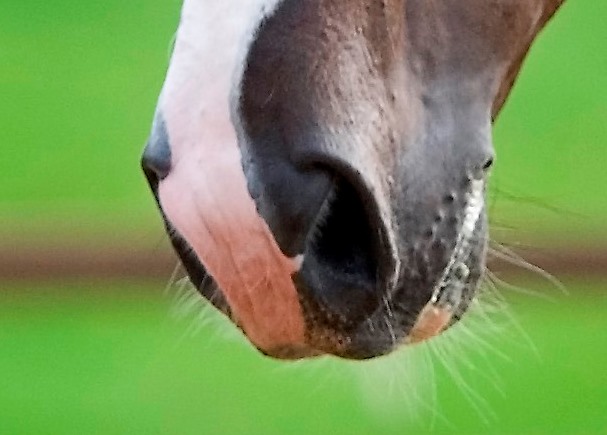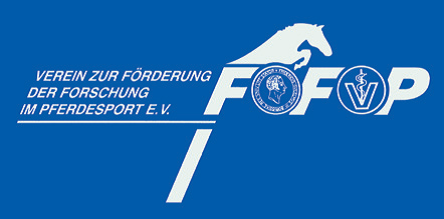


 |
 |
 |
News7. International Workshop on Linear Profiling in the Warmblood HorseOnce reliable planning had become possible and face-to-face meetings could be organized again, we have re-started our series of events - and the number of registrants and the diversity of their backgrounds were impressive. Linear description and the exchange on that topic are obviously still seen as very important: The 7. International Workshop on Linear Profiling in the Warmblood Horse, organized on March 29-30, 2023, in Grebin und Plön, Germany, had in the end 63 participants from 16 countries. There were delegations from the host country Germany, but also from Austria, Belgium, Denmark, Estonia, France, Ireland, Italy, Latvia, the Netherlands, Norway, Portugal, Slovenia, Sweden, Switzerland and the United Kingdom; the list of participants included names of interested breeders as well as representatives of several breeding organizations and research institutes.
The presentations on the second provided interesting insight in equine science and underlined the important role, linear data and possibly increasingly also sensor data can play for horse breeding. The conference material (handouts of the presentations, report) is found in the section International Workshop on Linear Profiling in the Warmblood Horse. 6. International Workshop on Linear Profiling in the Warmblood Horse: Part IAlso in 2020 and despite the current difficult situation for all of us, the series of events about linear description of conformation and performance in the horse should continue. However, at the beginning of March 2020 we realized that it will not make sense to try keeping our original plan of meeting in France (on 25 - 26 March 2020 in the National stud of Rosière-aux-Salines), implying the need for an alternative solution. We have now decided to split the 6th IWSLP into two parts:
In the video conference on Wednesday, 25 March 2020, from 9 a.m. to 1 p.m. (CET/MET), there were nine presentations on linear profiling from different countries, followed by general discussion. The program was obviously attractive for a range of people: Up to 61 participants from in total 17 countries were in the meeting and had the opportunity to ask questions to the speakers and to participate in the discussion. Focus topics at this year's IWSLP were: (1) linear description of foals and use of foal data, and (2) the potential role of technologies in linear profiling applications for sport horses. Because we had to skip the practical demonstration of the technology (3D morphology measurements etc.), the second topic could only be touched, but was kept in the program due to its potential future importance. It was once more very interesting to learn more about the slightly different implementations of linear profiling and the still widely consistent results across studbooks. When it comes to the foals, linear description is surely challenging, possibly more so than in older horses. However, genetic analyses indicate that horse breeders can benefit from including linear profiles of foals in routine applications, because early and valuable information on conformation and gaits becomes available. The studbooks, collaborating scientists and organizations are asked to continue working on the tools supposed to provide targeted support of breeding decisions. According to the very promising results of analyses of digitally recorded data, we may expect that future tools may make combined use of classically collected and automatically recorded data on morphology as well as movement and jumping patterns. The video conference has received multiple positive feedback, and this format may be seen as good chance to reach even more people and improve the flow of information between science and practice. However, practical sessions and physical meetings are surely highly valuable, so video conferences may in the future supplement, but not replace the live events in 2-days format. Therefore, we thank the French Institute for Horses and Equitation for their hospitality and keeping up their offer of hosting the IWSLP in the future.
5. International Workshop on Linear Profiling in the Warmblood HorseFor the first time in the still relatively young series of events on linear profiling, the workshop has been organized in Sweden and with a substantially strengthened focus on the practical part. And the two days, 22 - 23 January 2019, turned out to be a great success!
4. International Workshop on Linear Profiling in the Warmblood HorseFor the forth time, representatives from practice and science who are working with linear profiling have met for an open exchange on eye level. The workshop was organized in the proven format on 14-15 March 2018 in the North of Germany, and the great atmosphere of the whole event has contributed to its success.
Announcements until 20173. International Workshop on Linear Profiling in the Warmblood HorseThe series of events on linear profiling, analyses of linear data and breeding work using linear traits, supposed to strengthen collaboration between practice and science, was continued in 2017. The Principal and State Stud Marbach in Gomadingen, Germany, welcomed almost 50 people from 14 countries on 24-25 Februar 2017, and the participants enjoyed the two days of intense exchange in the beautiful surroundings.
2. International Workshop on Linear Profiling in the Warmblood HorseThere is little doubt that linear profiling ranks high among the current hot topics in sport horse breeding. After years with very few studbooks working with this methodology that is well established for other species, linear conformation and performance traits have meanwhile made their way into the breeding of riding horses: There is hardly any studbook which has not yet at least run a pilot study for testing the linear system; several studbook have introduced linear profiling as extended service and valuable amendment of the traditional valuating scoring - and the breeders generally appreciate this development. Furthermore, the use of linear data for various analyses and for strengthening the breeding programs has become an issue.
The meeting on 11-12 February 2016 in Warendorf, Germany, has now provided the opportunity to make new and intensify existing contacts and to discuss how to meet the challenges related to routine implementation of linear profiling. The numerous and very positive responses underlined the importance of and demand for exchange, and finally participants from nine countries have received valuable input for their daily work. The great surroundings at the North Rhine Westphalia State Stud Warendorf made it possible to provide a mixture of theory and practice and to organize a meeting for improved dialogue between science and practice and across countries and studbooks. Everybody agreed on the importance and great benefit of exchange of information and experiences - and the program of the workshop provided an appropriate framework.
The main outcome and conclusion of the workshop was that the high value of linear profiling for Warmblood breeding can only be safeguarded by thorough adherence to agreed best-practice procedures - from trait definition to results publication. In this context, regular education and training of assessors is extremely important - and a suitable topic for the next event of the proven science-to-practice format, which was preliminarily scheduled for February 2017. Studbook survey 2015: participation still possibleMore than 10 years ago, a survey on the breeding practices and breeding objectives of studbooks of sport horses was conducted. The results were published in 'An overview of breeding objectives for warmblood sport horses', Livestock Production Science (Koenen, Aldridge and Philipsson, 2004) and received considerable attention.
It was therefore decided to renew the above-mentioned study to get an update overview of sport horse breeding worldwide. The initiative was taken by the Interstallion working group of the Horse Commission of the European Federation of Animal Science (EAAP).
However, to get an even better overview of the worldwide situation and development of sport horse breeding, data collection is continued. The more answers we get, the more representative the study results will be, so we would highly appreciate more studbooks investing some time - it should be a good investment! We hope to receive feedback too as many of the 22 questions as possible, but if single questions appear too hard to be answered, please feel free to ask for clarification or possibly skip it.
Please return your filled-in questionnaires by December 14, 2015. Further details and contact information is found in the preface of the EAAP Studbook Survey 2015. New FFP special edition: "Funktionelle Genomforschung für Gesundheits- und Leistungsmerkmale beim Pferd" (Functional genome research for health and performance traits in horses [in German])Motivated by the very positive reponses to the FFP annual meeting, the editorial team succeeded in completing the procedings in less than six months. The papers corresponding to the slides presented at the seminar plus the major points addressed in the subsequent discussions have been compiled to an informative booklet. Special thanks go to the contributors who shared their knowledge and experiences with us - not only at the seminar, but now also in more detail as manuscripts!
Functional genome research for health and performance traits in horses - seminar on April 17-19, 2015, in Vechta, GermanyThe association Verein zur Förderung der Forschung im Pferdesport e.V. (FFP) is with its activities promoting the exchange and increase of knowledge about the sporthorse. Seminars are addressing 'hot topics' and give plenty of room for an intense dialog between science and practice.
Everybody interested in horses and seeking for an update with regard to recent developments in horse breeding, was kindly invited to the seminar which was jointly organized by the FFP and the Oldenburg associations (Verband der Züchter des Oldenburger Pferdes e.V.). A relatively small, but highly engaged group of people enjoyed the three days of intense exchange with experienced speakers and young scientists.
 Further information on the FFP is provided online at www.ffp-ev.de. Collaborative research project for improvement of equine health by breedingHealth aspects play a major role for horses, regardless of their keeping, management and use. However, the importance of equine health is currently not reflected in breeding, because health data are recorded heterogenously and are not available for routine use and analysis. To change this unsatisfactory situation, German horse breeding societies and veterinarians have initiated a collaborative research project on equine health. Representatives from the German National Federation, from the IT center vit and from science are complementing the project consortium. Implementation of an equine health data base is supposed to prepare the German horse breeding for sustainable measures for health improvement.
High sensitivity of health-related information imposes high demands with regard to the regulations of access and usage rights. All stakeholders of the equine sector need to be cautiously considered. There is little doubt that horse breeeders are highly interested to have more information on health traits available when making selection decisions. With thourough addressing of all legal requirements and highest priority of data protection, the project aims to path the way for usability of equine health data in the breeding of riding horses, implying valuable contribution to future competitiveness of the German studbooks. Publication on health data recording in the horseIn the course of a veterinary medical doctoral thesis, a comprehensive recording standard for equine diagnoses and findings has been developed. This will allow collecting comparable data for future analyses on horse health.
Information on new research projects, events, ... related to equine phenotypes will follow soon. |
|
|
| www.equinephenotypes.org © 2023 | ||